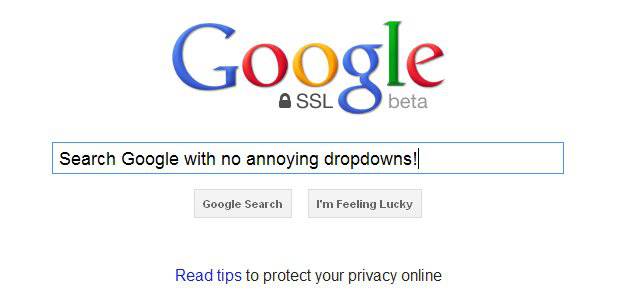What's the best URL for Google?

As one of Google's early fans, I've had it set as my browser home page since the late 1990s. However, I've changed the internet address several times over the past decade. Google hasn't abandoned google.com, of course. It's just that modifying the URL is the most practical way to avoid Google's attempts to "help" me.
As someone who has travelled a lot, the /ncr switch has been helpful. It's the No Country Redirect switch, and gives you a Google URL of http://www.google.com/ncr
This is useful not just when travelling in, for example, Asia, but when visiting the north of England or just sitting at home in London. For example, use Wi-Fi on some British trains, and Google will "helpfully" redirect you to the Scandinavian country that happens to host the server behind the Wi-Fi service. If you use an Astra satellite internet connection from home, Google will "helpfully" redirect you to its Luxembourg site. Or sometimes, extra helpfully, to Belgium.
Obviously it's faster to give you results you don't want in a language you (probably) can't read than to spend a millisecond checking the language setting in your Google cookie or, heaven forefend, actually providing user settings.
Instant miss
But this was trivial compared to the introduction of Google Instant. At first glance, this looked like a pointless distraction and a significant waste of bandwidth, but at least Google let you turn it off. Unfortunately, Instant brought two hidden problems. First, Google had also removed its single most useful search feature, which was the use of autocomplete on your own previous searches. Second, Google now prevented you from turning off its own autocomplete service, Google Suggest.
So: Google "helpfully" removed the autocomplete feature from my own sophisticated Boolean searches and replaced them with censored suggestions based on the collected stupidly of billions of previous searches by people who don't have a clue how to search, let alone touch-type.
Security and privacy
Anyway, as you may be aware, searching is now a dangerous pastime, because of the vast number of people and organisations who are keen to log and profile your interests to sell you things, or in some countries, throw you in jail. It's why many sensible people have switched to duckduckgo or ixquick, or else do their searches via an anonymous proxy, or use their browser's InPrivate Browsing, Incognito or similar feature, or all of the above.
I'm still doing most searches at Google, but I'm currently using the following (beta) URL to get a clean and reasonably secure search while staying logged into Gmail:
https://encrypted.google.com/webhp?complete=0&hl=en
The "webhp" stops the browser from being redirected to mobile pages. If you have not turned off Web History (password required) and want to turn off personalisation (pws=0), try this and see if you like it:
https://encrypted.google.com/webhp?complete=0&hl=en&pws=0
Better still, let me know if you have a better URL….
